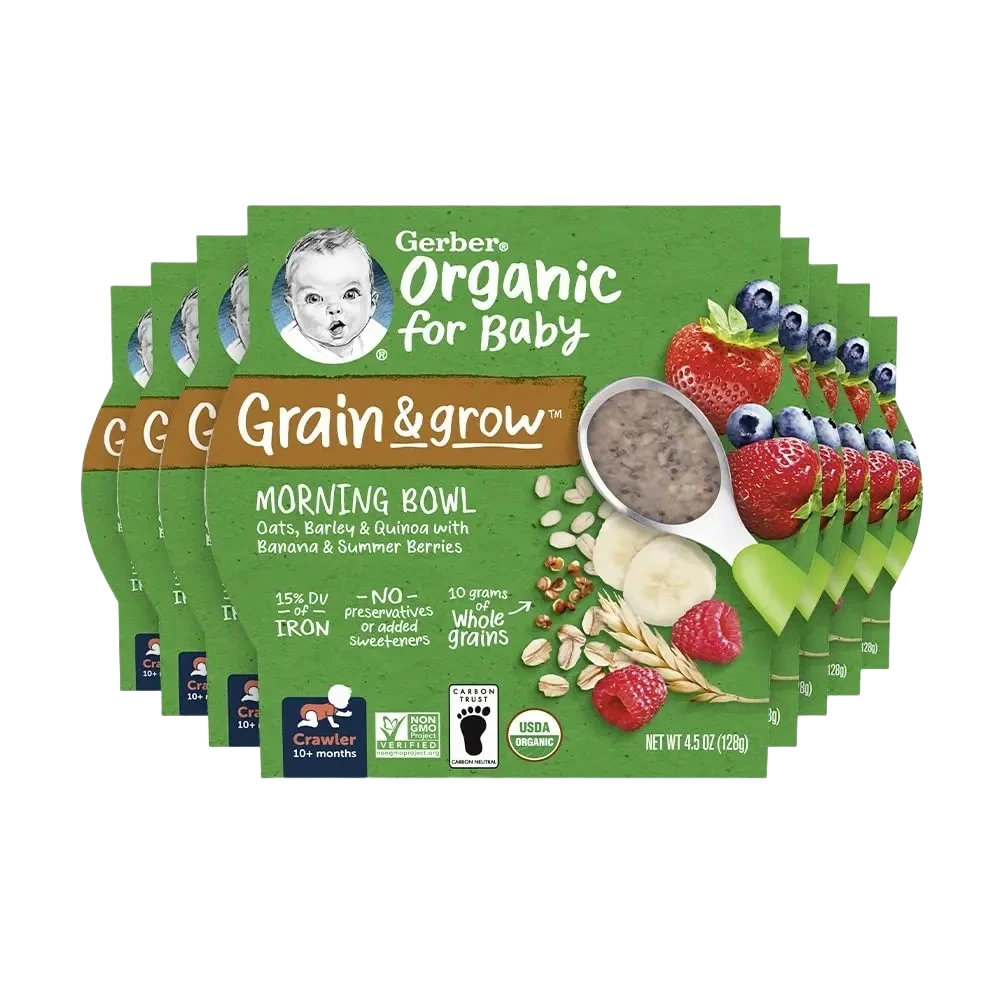Gerber Organic for Baby Grain & grow™ MORNING BOWL Oats, Barley & Quinoa with Banana & Summer Berries
baby food • For 6-12 month old babies • Consumable 🍝
Product Images
Product Photo

Tap to enlarge
Ingredient List

Tap to enlarge
Can older babies eat Gerber Organic for Baby Grain & grow™ MORNING BOWL Oats, Barley & Quinoa with Banana & Summer Berries?
Check for Different Age (6 available)
Ingredients Analysis (13 found)











Common Questions About Gerber Organic for Baby Grain & grow™ MORNING BOWL Oats, Barley & Quinoa with Banana & Summer Berries
Safe for older babies? Gerber Organic for Baby Grain & grow™ MORNING BOWL Oats, Barley & Quinoa with Banana & Summer Berries
Use caution with Gerber Organic for Baby Grain & grow™ MORNING BOWL Oats, Barley & Quinoa with Banana & Summer Berries for 6-12 month old babies. Some ingredients may pose concerns.
What ingredients should I watch out for?
We analyzed 13 ingredients in Gerber Organic for Baby Grain & grow™ MORNING BOWL Oats, Barley & Quinoa with Banana & Summer Berries. 1 caution. Check the detailed analysis above for specific concerns.
Is this appropriate for older babies to eating baby food?
The appropriate age depends on the specific ingredients. This analysis is for 6-12 month old babies. Use the age selector above to check other ages.
⚠️ Important Disclaimers
Product Recognition: Product names are identified programatically and may be incorrect. Always verify product identity yourself.
Safety Analysis: Evaluations are for research only - consult pediatricians for medical decisions. Do not rely solely on this analysis.
No Guarantees: Results may be incomplete or inaccurate. Do not rely solely on this analysis.